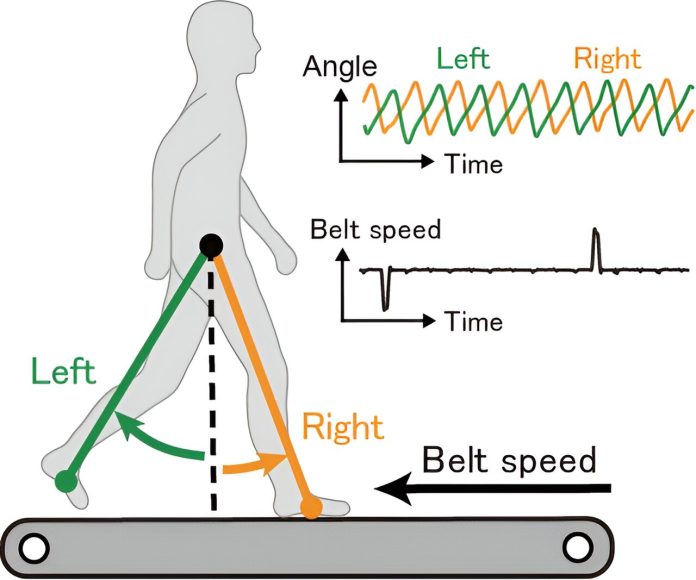
It only steps in when things go wrong, study finds.
Walking is something most of us do without much thought.
It seems easy to walk and do other things at the same time, like talking or chewing gum.
This is because each leg moves rhythmically, controlled by its own side of the spinal cord. But when something disrupts our walking, like a change in speed or direction, the brain steps in to help us maintain balance and coordination.
A new study from Osaka University, published in Communications Biology, reveals how the brain intervenes in walking only when our legs become too uncoordinated.
The researchers wanted to understand how the brain helps keep our walking rhythm steady, especially when we face challenges like uneven surfaces or sudden changes in pace.
In the study, healthy participants walked on a treadmill that occasionally changed speed without warning.
These sudden shifts caused the participants to momentarily lose their usual walking rhythm, known as the “antiphase relationship,” where one leg moves out of phase with the other. However, the participants quickly regained their normal walking rhythm after the disruption.
The researchers used a mathematical model, similar to two pendulums connected by a spring, to analyze the walking data.
They also applied a method called Bayesian inference, which helped them figure out when and how the brain takes control to coordinate leg movement.
Surprisingly, they found that the brain doesn’t constantly monitor and control the legs. Instead, it only intervenes when the coordination between the legs becomes too disrupted, beyond a certain threshold.
This means the brain allows the legs to move mostly on their own, stepping in only when necessary. This helps save brainpower and energy while walking.
Lead author Takahiro Arai explained, “Using this method, we were able to understand how the brain controls leg coordination in a more precise way.”
Senior author Shinya Aoi added, “Our findings show that the brain strikes a balance between control and flexibility. It doesn’t over-control, which could make it harder to adapt to obstacles, but it also doesn’t leave us too uncoordinated, which could lead to falls.”
This research could help improve rehabilitation techniques for people who have had strokes, Parkinson’s disease, or other neurological conditions. It may also lead to the development of better physical aids that help people walk more naturally.
The findings highlight the brain’s smart way of keeping us balanced, intervening only when needed to ensure smooth and safe walking.
If you care about brain health, please read studies that eating apples and tea could keep dementia at bay, and Olive oil: a daily dose for better brain health.
For more health information, please see recent studies what you eat together may affect your dementia risk, and time-restricted eating: a simple way to fight aging and cancer.



